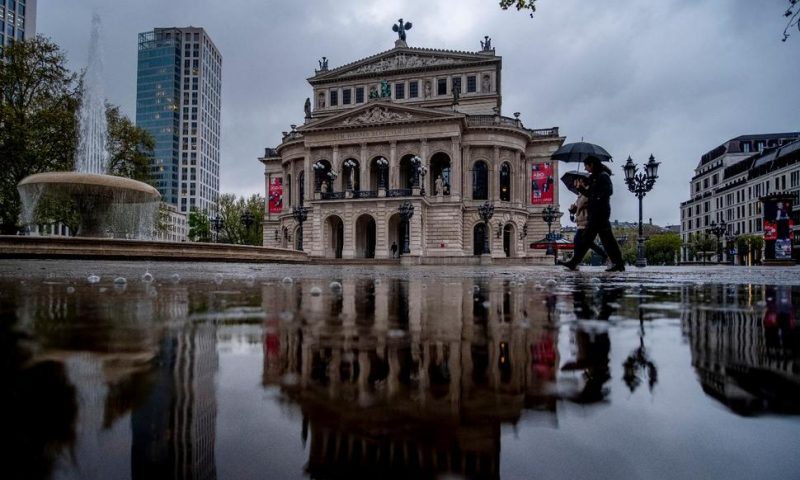Factory production and exports increased strongly in Germany in March.
BERLIN — Factory production and exports increased strongly in Germany in March, according to official statistics released Friday, developments that bode well for the second quarter in Europe’s largest economy as it struggles to emerge from the coronavirus pandemic.
The Economy Ministry said industrial production rose 2.5% in March over February when adjusted for seasonal and calendar factors.
The increase followed drops of 1.9% in February and 2.2% in January. ING economist Carsten Brzeski noted that on the year, industrial production was up a strong 5.1%.
In a separate encouraging report, German exports were up 1.2% in March over February, and up 16.1% over March of last year, according to seasonally and calendar adjusted figures from the Federal Statistical Office.
“After weaker industrial data in the first months of the year on the back of a long Christmas break, harsh winter weather and the Chinese New Year, industry has finally gained momentum,” Brzeski said.
“Looking ahead, filled order books and low inventories bode well for industrial activity. Fiscal stimulus and investment initiatives around the globe should also benefit German industry.”
In the first quarter, exports were up overall 2.4% over the same quarter of 2020, with a strong 4.8% rise in exports inside the European Union brought down by a 0.3% drop to non-EU countries. Imports rose 4.5% in the EU and fell 0.1% from outside the EU.
The first quarter of 2021 was the first since Britain’s exit from the EU, and Brzeski noted it was the first time ever the United Kingdom had dropped out of Germany’s top five most important export destinations.
In the first quarter, German exports to Britain dropped 17.6% while imports from Britain dropped 27.7% over the same quarter in 2020.
Germany’s economy did better last year than several others in Europe as it was supported by manufacturing, which has taken less of a hit than services during the pandemic.
German authorities haven’t imposed any shutdowns on industry during the crisis, but many restrictions on businesses such as restaurants, bars, hotels and leisure facilities remain in place.

